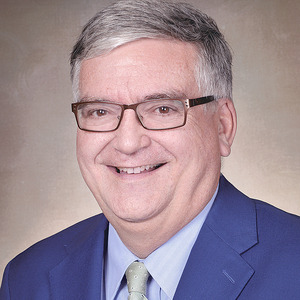
A platform that encourages healthy conversation, spiritual support, growth and fellowship

NOLACatholic Parenting Podcast
A natural progression of our weekly column in the Clarion Herald and blog

The best in Catholic news and inspiration - wherever you are!
A 2022 resolution: Live for God and for others
-

A friend posted this the other day on Facebook – it was either on a Monday or a Tuesday or a Wednesday, one of those days that seemed to come and go with such glorious abandon during the Christmas and New Year’s celebrations.
The ageless reflection comes from C.S. Lewis, the great writer and theologian who felt compelled to respond to the fear introduced to human existence by the genocidal capacity of the atom bomb.
In short, people living during WWII stood transfixed at a mushroom cloud capable of producing inescapable death and asked themselves: How can we go on living each day as though it might be our last?
Lewis’ reply provides much to ponder at a time when a pandemic has forced humanity, once again, to face the reality of the human condition.
Lewis wrote: “In one way we think a great deal too much of the atomic bomb. ‘How are we to live in an atomic age?’ I am tempted to reply: ‘Why, as you would have lived in the sixteenth century when the plague visited London almost every year, or as you would have lived in a Viking age when raiders from Scandinavia might land and cut your throat any night; or indeed, as you are already living in an age of cancer, an age of syphilis, an age of paralysis, an age of air raids, an age of railway accidents, an age of motor accidents.’
“In other words, do not let us begin by exaggerating the novelty of our situation. Believe me, dear sir or madam, you and all whom you love were already sentenced to death before the atomic bomb was invented: and quite a high percentage of us were going to die in unpleasant ways. We had, indeed, one very great advantage over our ancestors – anesthetics; but we have that still. It is perfectly ridiculous to go about whimpering and drawing long faces because the scientists have added one more chance of painful and premature death to a world which already bristled with such chances and in which death itself was not a chance at all, but a certainty.
“This is the first point to be made: and the first action to be taken is to pull ourselves together. If we are all going to be destroyed by an atomic bomb, let that bomb when it comes find us doing sensible and human things – praying, working, teaching, reading, listening to music, bathing the children, playing tennis, chatting to our friends over a pint and a game of darts – not huddled together like frightened sheep and thinking about bombs. They may break our bodies (a microbe can do that) but they need not dominate our minds.”
In other words, live to serve God and others.
On our final day before the Christmas holidays, Archbishop Aymond gathered the archdiocesan staff for a brief prayer service. He used a prayer made famous by St. Teresa of Avila, who preached the necessity of each Christian taking prayer into the streets.
Christ has no body but yours,
No hands, no feet on earth but yours,
Yours are the eyes with which He looks
Compassion on this world,
Yours are the feet with which He walks to do good,
Yours are the hands, with which He blesses all the world.
Yours are the hands, yours are the feet,
Yours are the eyes, you are His body.
Christ has no body now but yours,
No hands, no feet on earth but yours,
Yours are the eyes with which he looks compassion on this world.
Christ has no body now on earth but yours.
Love of God, and love of neighbor, are the ultimate ways to drive out fear.
Happy New Year!




